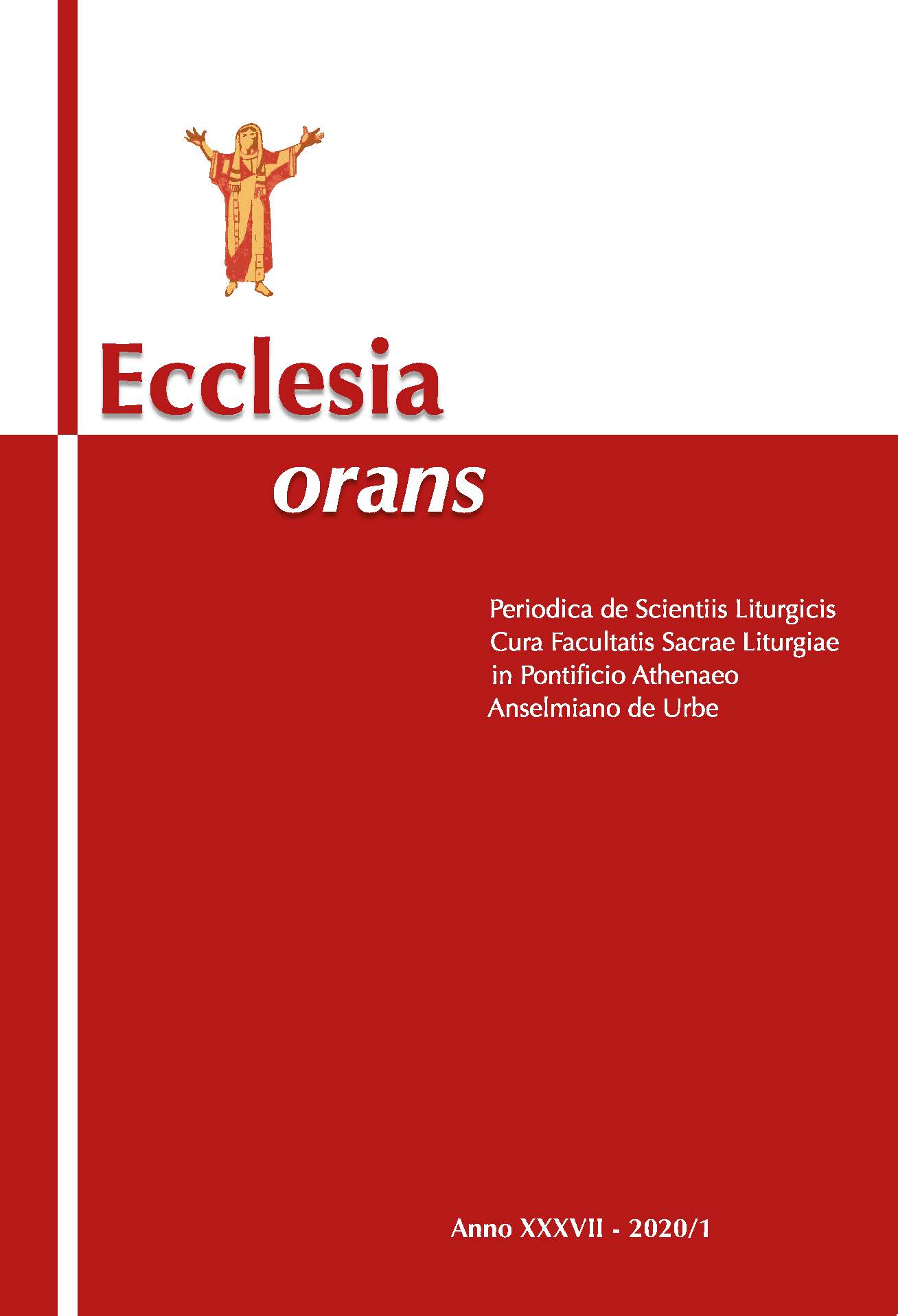Adnotationes
The terrible situation of the pandemic has not stopped the work of the Pontificio Ateneo Sant’Ansemo, as we continue to guarantee academic support through alternative didactic forms in the same vein undertaken by Italian schools of all levels and as mandated by the Ministry of Education, University and Research as well as the Congregation for Catholic Education, which recommended that students not be left alone during this emergency situation.
Therefore, we have welcomed invitations to continue studies as much as possible and to maintain the lectures of Anselmian professors. Work for the doctorate, the lectio coram and the licentiate continue, even with doctoral defenses held via streaming as seen on the Ateneo’s website. In this period of emergency, various and numerous reflections on the liturgical situation have arisen.
In this context, the editorial staff has continued to work remotely on the layout and correction of the first issue of 2020, a particular year in the history of the Institute in the stream of the larger universal history dealing with survival.
There was no shortage of articles and scientifically qualified contributions received by the editorial staff. Nevertheless, it seems appropriate to remember that Ecclesia orans as a journal of liturgy welcomes the contributions of doctoral students, professors and alumni of Sant’Anselmo for whom we are committed to ensuring a more intense work so as to make the results of research available as soon as possible.
Activities of the Ateneo and of the Editorial Staff
On 5 December 2019, the Congregation for Catholic Education confirmed the election of Bernhard Eckerstorfer OSB as Rector Magnifico of the Pontificio Ateneo Sant’Anselmo in Rome. Fr. Bernhard served as professor at Kremsmünster Abbey (Austria). The election took place on 4 October 2019, presided by the Most Rev. Gregory J. Polan OSB, Abbot Primate of the Benedictine Confederation and Grand Chancellor of the Ateneo. Prof. Eckerstorfer assumed his role beginning 16 December 2019 and took over from Fr. Stefano Visintin OSB, who had served as Rector of the Ateneo for two years before being elected abbot of the monastery of Praglia. Our gratitude goes to Fr. Abbot Visintin for the care and attention he devoted to the journal and our best wishes to the new Rector for the ministry he will carry out in the service of the Ateneo.
Together with the appointment of the new Rector, the Vice Rector was also confirmed: Prof. P. Nouzille OSB, who serves as Dean of the Faculty of Philosophy in our Ateneo.
With the annual commemoration of Sacrosanctum Concilium, the 2020/1 issue was presented by the director, Prof. M. Tymister, as an occasion to describe some editorial changes contained in the present issue.
Moreover, we have begun collecting contributions written by various pupils, doctoral students or graduates of the PIL who have dedicated their efforts to the study of sources, in particular those of the ordines Missae. These organized and ordered works will constitute a new volume of the Studi e ricerche series.
In memoriam
On Saturday, 18 January 2020, our faculty members and academic community heard the sad news of the passing of Prof. Silvano Maggiani OSM, honorary professor of the PIL. The loss of Fr. Silvano Maggiani, friar of the Order of the Servants of Mary, former preside of the Pontifical Faculty of Theology of the Marianum and professor of the PIL, stirs up great sorrow as we write these few lines. We believe it fitting to remember Fr. Silvano because he was a great master, an affectionate friend of the PIL and an ever-prodigious contributor to our journal. This learned and sensible master guided generations of students of the Marianum and of the PIL towards a sustained research of the anthropological and theological sense of worship, being a mystagogue and a great enthusiast of the study of worship, symbology, and liturgical art. We remember his regular presence in the academic life of the PIL for the licentiate and doctoral theses, his skilled commitment for the liturgical congresses, to which he always gave his dedication and time, including the last congress on Liturgy and Culture. His academic commitment principally revolved around the study of rite as an anthropological category to be explored, an issue that led him to an in-depth study of the liturgy as well as the “auxiliary” sciences which gave him permission to share with fellow liturgists ideas and extremely original pathways of research, accompanied always by profound theological reflection of themes he dealt with in his works and contributions. Particularly important are his in-depth studies on the theology of celebration, the structures of liturgical books composed and published after the Second Vatican Council, which he whole-heartedly supported, especially the three new liturgical books on papal liturgies published in 2000: the Ordo exsequiarum romani pontificis, the Ordo rituum conclavis and the Ordo rituum pro ministeri petrini initio Romae episcopi. This is because part of the silent and precious work of Fr. Maggiani was placed at the service of papal liturgies during his time as a consultor of the Office for the Liturgical Celebrations of the Supreme Pontiff.
FRANCESCO BONOMO – DOMINIK JURCZAK
Assistant Editors


